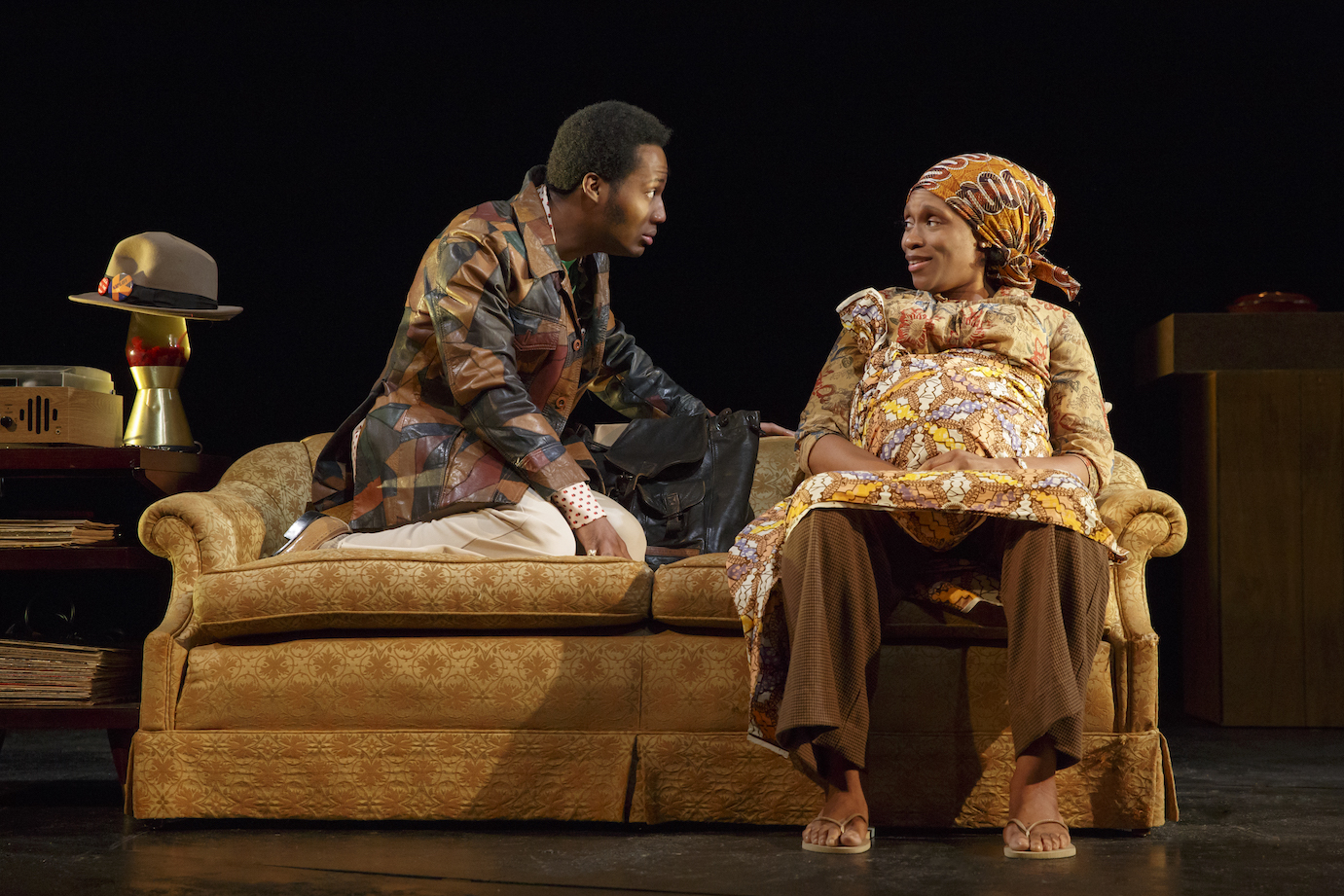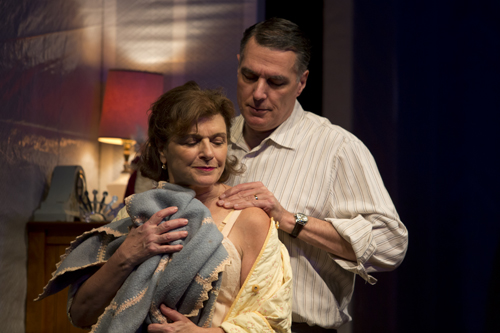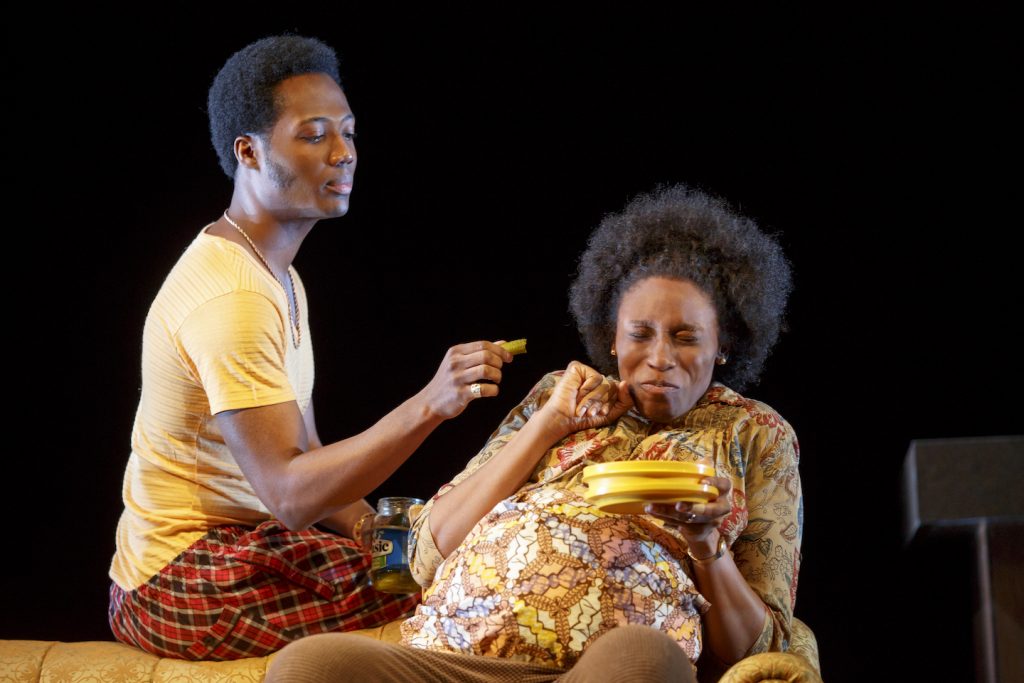

by JK Clarke
It’s easy to forget how difficult assimilation and integration into American society can be. Europeans fleeing pogroms, poverty or famine in the late 1800s and the early part of the 20th century arrived to find a culture and society that often seemed as distant as the moon—which explains why the formation of enclaves of people from the “old country” was so prevalent. It’s a little easier to get a glimpse of the extreme lifestyle transitions new immigrants face in plays like Mfonsio Udofia’s Sojourners—which follows a married college-student Nigerian couple beginning a life together (with a baby very soon on the way) in 1970s Houston, Texas of all places—now playing at New York Theatre Workshop in repertory with Her Portmanteau (both directed by Ed Sylvanus Iskandar) another piece of Udofia’s nine-part saga, The Ufot Cycle.
The primary sojourners of the play—Ukpong Ekpeyoung (Hubert Point-Du Jour), an enthusiastic America-phile who loves Motown, beer and skin magazines; and his wife by a hastily arranged (back home) marriage, Abasiama Ekpeyoung (Chinasa Ogbuagu), a hard-working, biology-studying striver, enthusiastic about building a life in America, despite her homesickness—are, we see almost immediately, clearly mismatched, united only by a mutual physical attraction. When the discord surfaces, Ukpong reminds her of their chemistry, “Recall when I first came to your compound and you saw me. Underneath your breath you muttered, ‘finefine.’” For his part, Ukpong is particularly attracted to her diastema (the gap between the two front teeth, which is a symbol of beauty in Nigeria), but for all intents and purposes he’s a deadbeat who doesn’t treat her with the sensitivity and regard that one would for a pregnant woman in presumably every culture on earth.
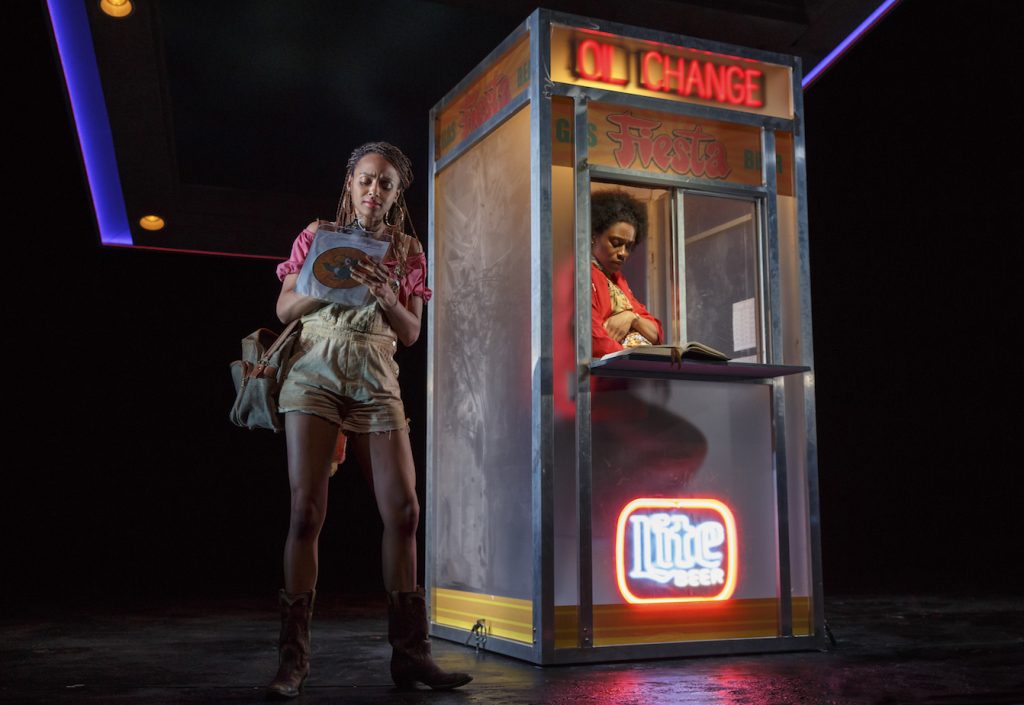

Meanwhile, the turntable stage reveals another set and a new character, Disciple Ufot (Chinaza Uche), a struggling writer at a typewriter, seemingly looking for divine inspiration to remove his block in a scene of frustration and wadded up pieces of typing paper and rain beating on a skylight that just about any writer would recognize. His interludes are brief.
Then the stage turns again to reveal Abasiama at work in a lonely roadside gas station booth, where a 16-year-old African-American prostitute named Moxie Willis (Lakisha Michelle May) variably asks for a job application or handouts of Snickers and mini liquor bottles. Abasiama is fascinated by Moxie—who’s a sometimes outlandish caricature, and sometimes a touch anachronistic (too modern for a period piece), but an otherwise delightful character—and she sees hope in Moxie where few others would.
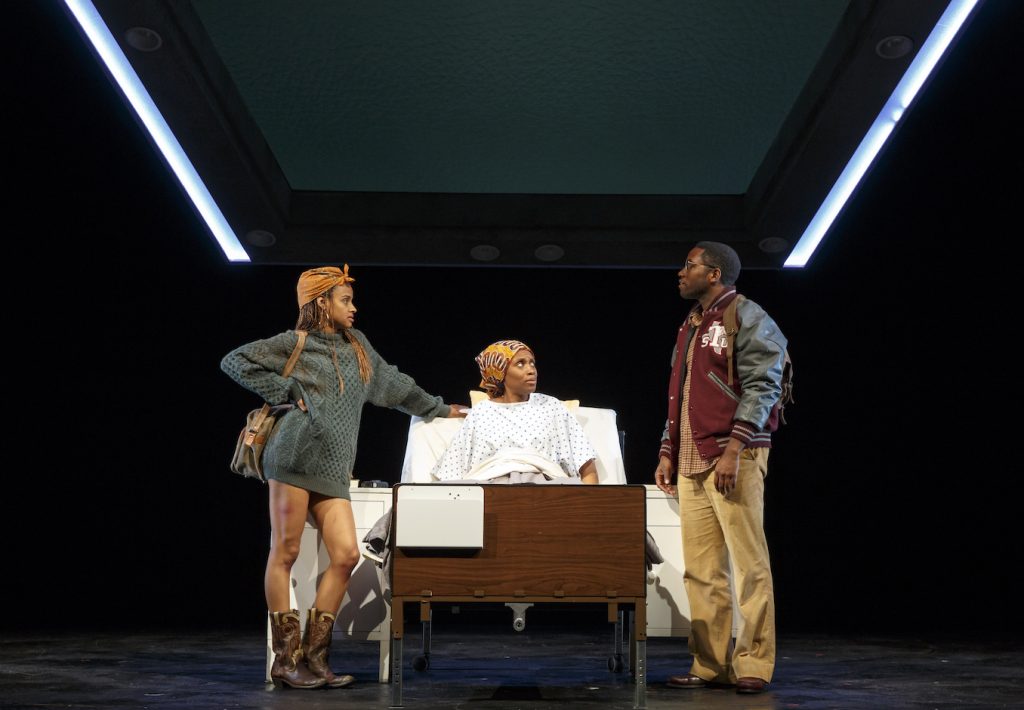

Naturally, these characters all come together—except Ukpong who bails at the most inopportune moment, living up to his character flaw—in a moment of urgence (guess why) that unites them indelibly. Abasiama emerges as a symbol of love and hope, a repeated theme in the story of the American immigrant. As she begins her unexpected process of assimilation, she both influences via her culture and is touched by that of her new surroundings.
On its own, Sojourners might not shine as brightly as it does as part of a multi-part saga. Her Portmanteau (see review here), which picks up thirty years after the end of this play, adds dimension and insight that would not be there otherwise. Coupled with Jiyoun Chang’s excellent lighting and projection effects, as well as Jeremy S. Bloom’s terrific sound design, a fascinating atmosphere is created that allows us to crawl inside the story and feel what it might be like to be a new component of the American Experience.
Sojourners. Extended Through June 11 in repertory with Her Portmanteau at the New York Theatre Workshop (79 East 4th Street, between Second Avenue and The Bowery). Two and half hours with one 15 minute intermission. www.nytw.org
Photos: Joan Marcus


